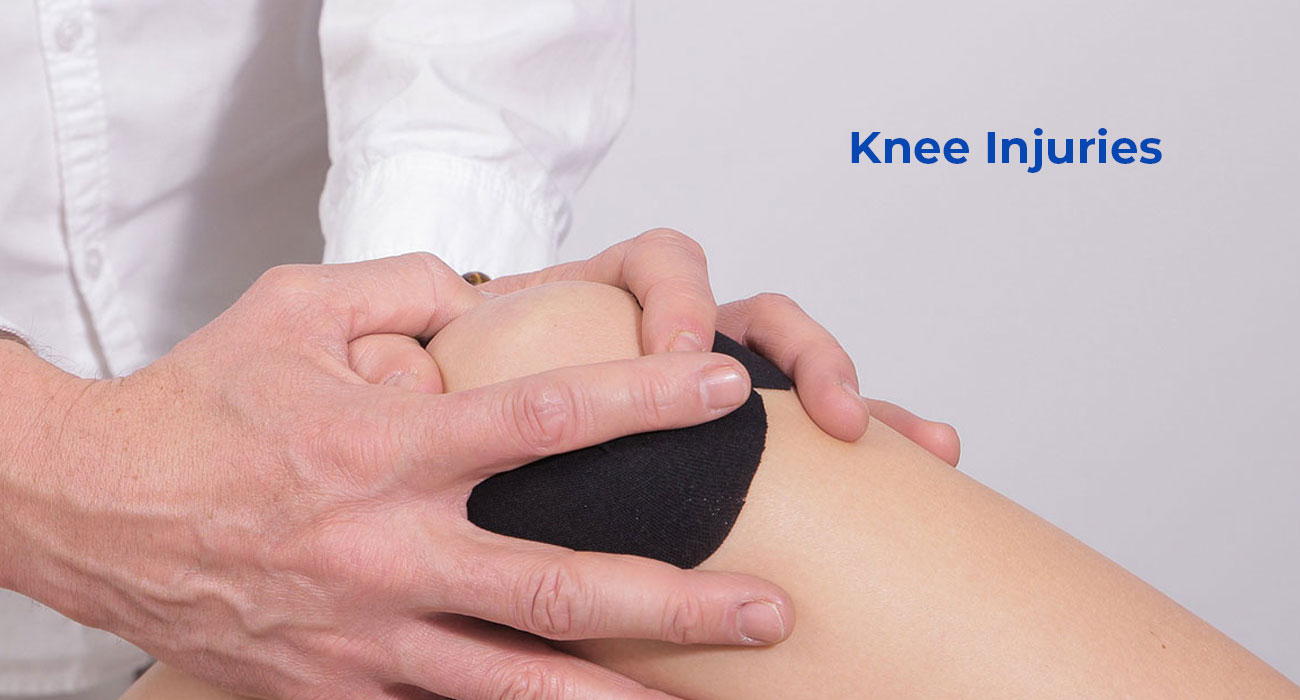All You Need to Know About Knee Cap Dislocation
05/03/2021
Knee cap dislocation is a condition marked by the displacement of the patella bone, which may be accompanied by the stretching and tearing of the connective tissues that hold it in place. It is one of the most common knee injuries and results from a sudden change in direction while your feet are still planted on the ground. This can happen while you are playing your favourite sport or dancing to your favourite beats.
As per the experts specializing in knee injury treatment in Jaipur, people experiencing dislocation for the first time may take up to 6 weeks to heal completely. This time may vary depending upon the type of treatment and the pace at which you are recovering.
Symptom that you need to look out for:
The symptoms associated with knee dislocation differ depending upon the severity of the injury and how much damage has been inflicted on the surrounding structures. In case of less severe injuries, the kneecap may be dislocated partially before coming back to its position. This is commonly referred to as subluxation. As per the experts from the best hospital in Jaipur, patients suffering from this condition are likely to return to their regular activities rather quickly.
Some common symptoms associated with partial knee dislocation include:
- the feeling that the kneecap has slipped to one side
- persistent pain that majorly affects the front portion of the knee
- painful pop in the knee
- joint stiffness
- swelling in the knee
- locking or catching sensation in the knee
- joint instability
Some common symptoms associated with complete knee dislocation include:
- evident physical deformity in the knee
- knee pain ranging from moderate to severe
- strong popping sensation in their knee
- severe stiffness
- chronic swelling
- knee locks, making it difficult to move your legs
- limited range of motion
Experiencing the above-mentioned symptoms does not necessarily mean that your knee cap has been dislocated, however, it is better to get yourself evaluated for the same. Even if the kneecap shifts back to its original position, it is important to see a doctor for a proper assessment, to make sure that there is no complication. You can consult experts from the leading orthopedics and joint replacement hospital.
What are the treatment options available?
As mentioned earlier, the treatment for joint dislocation varies depending upon how severe your injury is and if the damage has been inflicted upon the surrounding bone, cartilage and tissues. There is a wide spectrum of treatment options available nowadays that can be personalized to suit your specific needs.
- Physical therapy
- RICE therapy: Rest to negate the risks of further damage, Ice to alleviate inflammation and pain, Compression to relieve pain and Elevation to reduce swelling
- Non-steroidal anti-inflammatory drugs like ibuprofen or aspirin
- Crutches or cane to help you move around and relieve pressure from the knees
- Braces for stabilization and support
- Orthotics or shoe inserts to decrease stress
- Aspiration to get rid of excess fluid
Surgical treatments
People with knee dislocation rarely need surgery and it is usually recommended in case of severe injury.
Some of the most popular treatment options include:
- Arthroscopic Surgery – It is a minimally invasive procedure that involves the use of endoscopic imaging guidance to visualize, diagnose, assess and treat a wide spectrum of joint problems.
- Reconstructive Surgery – The surgery helps to repair damaged cartilage, bones, tendons and ligaments, as well as to remove the suspended bone and cartilage fragments.
- Tibial Tuberosity Transfer – It is a complex surgical procedure that involves the removal of a tiny piece of the shin bone or tibia and shifting it to a new position, to enhance stability and improve the alignment of the kneecap. This may involve the use of screws to hold the bone piece in place.
Reoccurrence
If you have dislocated your knee once, you are at a higher risk of doing it again. Studies have shown that recurrent kneecap dislocation is fairly common in people who opt for non-invasive treatments when they experience the problem for the first time. There are almost 50 per cent chances of the same. The risks are also higher for those who do not get enough time to recover from the 1st injury.
Hence, the best doctors in Jaipur suggest that surgical treatment is a good option for people who are experiencing the problem for the first time and are at an elevated risk of recurrence. However, it is important to understand that surgery comes with certain risks and these are to be evaluated before giving a green signal.

